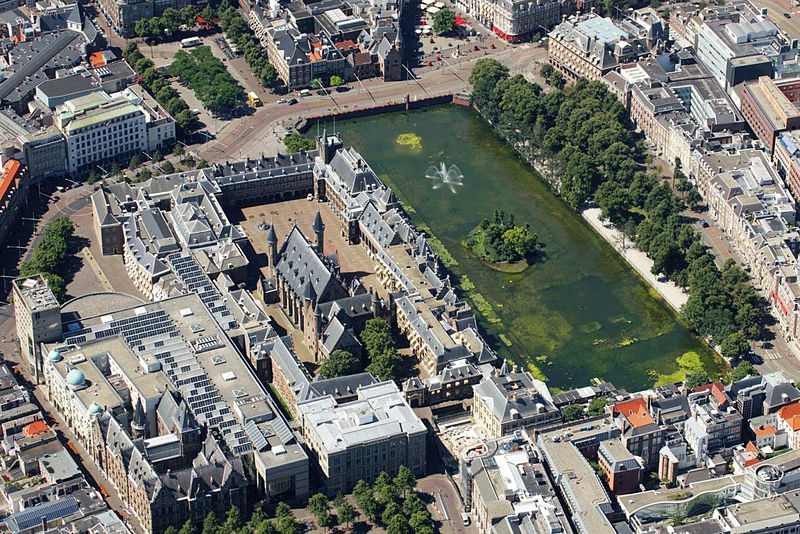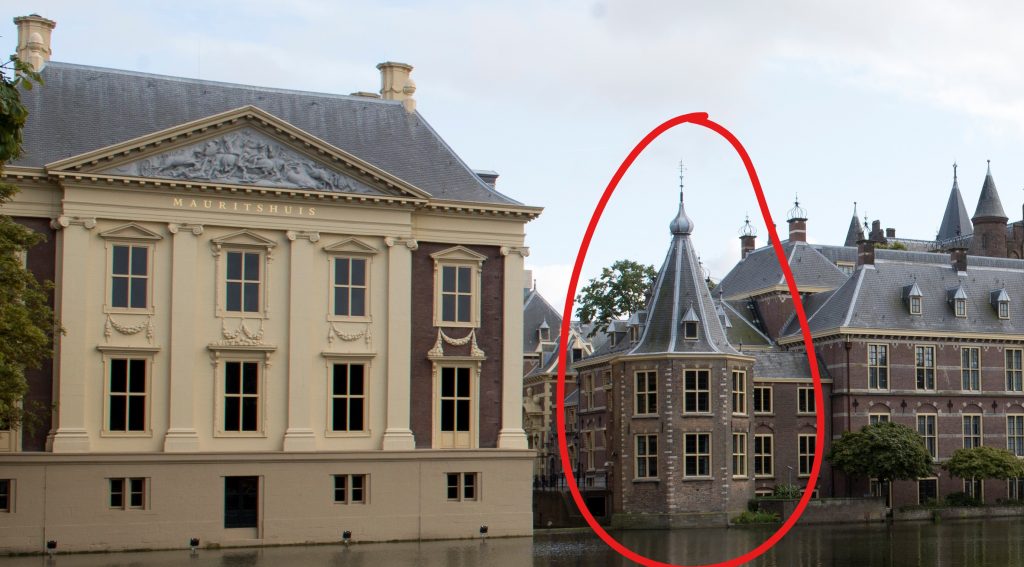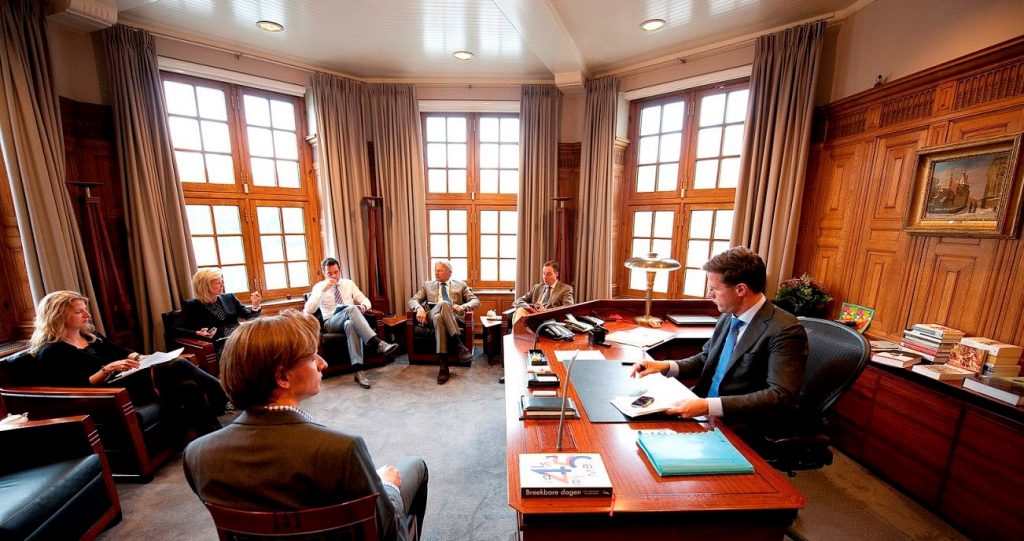Binnenhof: Het Torentje Posted by Sten on Mar 30, 2020 in Dutch Language
The Binnenhof (Inner Court) is the center of the Dutch overheid (government). Located in the heart of Den Haag (The Hague), it oozes Dutch geschiedenis (history) and verhalen (stories). In this series, we’ll go building by building and explore what each is all about. Starting today with het Torentje!
For more posts in the Binnenhof series, click here.
What is het Torentje?
Het Torentje (“the little tower”) is a small tower at the lower right corner of the Binnenhof complex. The achthoekige (octagonal) two-storey tower was mentioned for the first time in 1354, and was probably built around that time. It was likely used as a zomerprieel (summer arbor), a summer garden by the graven (counts) of Holland, as there used to be a garden of the current location of the Mauritshuis. In the 15th century, during the Tachtigjarige Oorlog (Eighty Years’ War), the Torentje was transformed into a vestingwerk (fortification) with schietspleten (arrowslits). The windows and torenspits (tower peak) were added in 1547. During this time, the Torentje was used for many purposes, but most of them rather for the upkeep of the Binnenhof than for anything political.
Only in 1798, it became a political office. It became the werkkamer (study, office) of the secretaris-generaal (Secretary General) of the ministerie van Binnenlandse Zaken (ministry of internal affairs). Johan Thorbecke, one of the most important staatsmannen (statesmen) of the Netherlands, made it his office in 1849, as minister of Binnenlandse Zaken. After that, now and then premiers (prime-ministers) would use it as their werkkamer. Only since 1982, when Ruud Lubbers assumed the office of minister-president (prime-minister), the Torentje became the permanent, default werkkamer of the premier.
Why does het Torentje matter?
The Torentje matters because it houses the werkkamer of the premier. Currently, Mark Rutte holds it. The Torentje is not a residence, by the way. Officially, the residence of the premier is the Catshuis, but it’s been a long time that a premier lived there. They normally live in private residences, though they are allowed to live in the Catshuis if they so preferred.
But the Torentje is a strict work-related building. This is where the premier discusses policy-related business and does his daily work. However, the inside of the Torentje is not seen a lot. Unlike the White House Oval Office, the premier addresses the country more often from the Tweede Kamer (Dutch Congress, Second Parliamentary Chamber) or a persconferentie (press conference). Though rarely, the premier directly addresses the country from the Torentje, like this month concerning the coronavirus. Though also in more expected moments, like when koningin (queen) Beatrix left her office in 2013, Rutte spoke to the country from the Torentje. However, not from his bureau (desk), but in front of the windows:
What do you think about the Torentje as the Dutch PM’s werkkamer? What’s the werkkamer of the premier of your country? Let me know in the comments below!

Build vocabulary, practice pronunciation, and more with Transparent Language Online. Available anytime, anywhere, on any device.






